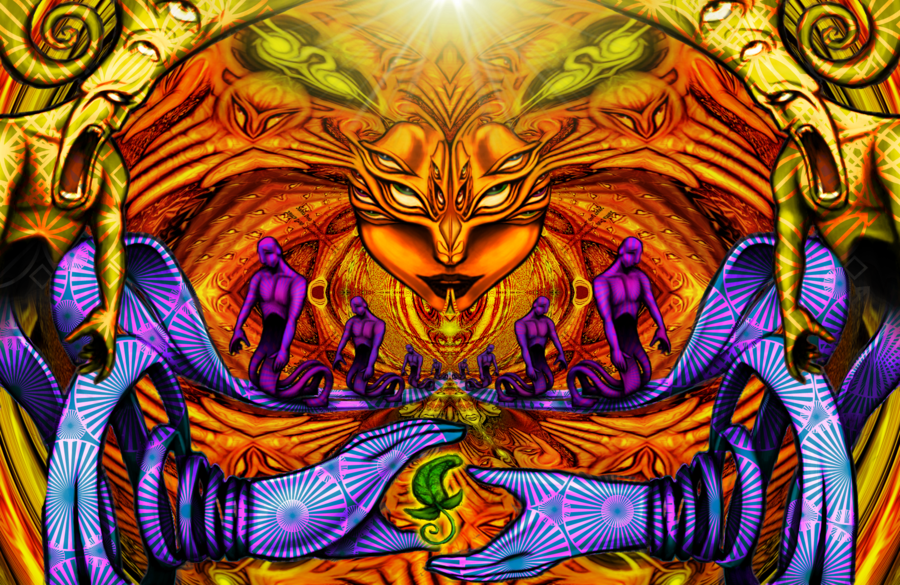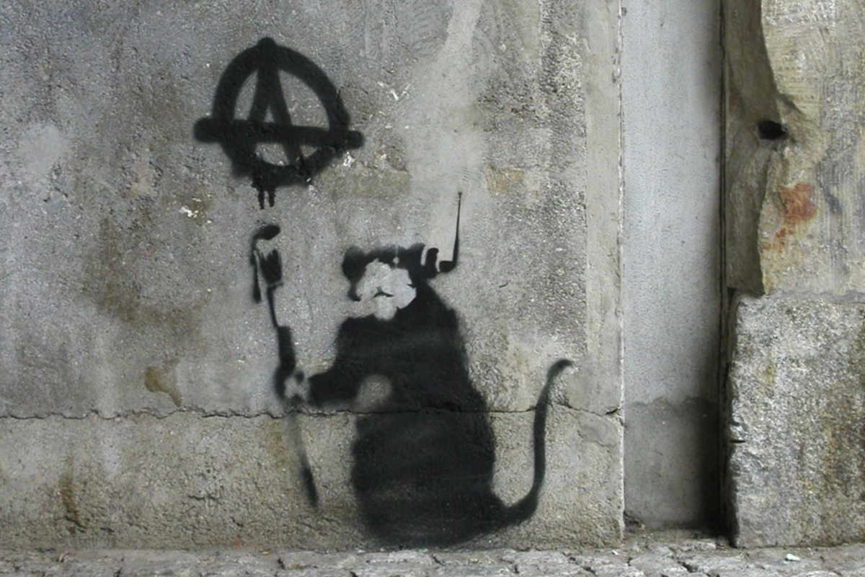There is only one ‘meaning’ in life and that is the meaning of ‘moving beyond who we think we are’ and this just happens to be the one type of meaning we don’t want anything to do with! We like the type of (so-called) meaning that confirms and validates who we already think we are. This is what ‘ticks the box’ for us…
The sense of meaning that comes with ‘moving beyond who we think we are’ (which is also the sense of meaning that comes with ‘moving beyond our models’, or ‘moving beyond accustomed ideas about the world’, is the type of meaning that is sanctioned by our culture. As a result of this paradigm we are, in our day-to-day lives, ceaselessly engaged in trying to prove on the one hand that ‘we are who we say we are’, and – on the other hand – that how we are looking at things is the right away, that our ‘theory of things’ is the correct one.
Both of these come together in our unbridled enthusiasm for achieving our goals. This enables us to ‘kill two birds with one stone’, so to speak – when we successfully achieve our (socially validated) goals then this gives us an unquestionable identity as being ‘an achiever’ and in dedicating all our energy to the diligent pursuit of goal-orientated activity we also validate the view or picture of the world that we are unconsciously assuming. If so much effort and time is invested by so many people in achieving our (or society’s) goals then this indirectly proves to us that our theory or model regarding the vexed question as to ‘what life is all about’ must be the right one. This is where we get our (false) sense of ontological security from.
The clearest and most essential way to illustrate this is by talking in terms of games – the aim of the game is to win, obviously, which means ‘obtaining the very specific outcome that is defined by the game as winning’. We have to fulfil the criterion. When we do this then we are automatically defined by that game – we are given the identity of <winner> or <loser> and this identity is non-negotiable. Saying that the identity that we are allocated by the game is ‘non-negotiable’ is of course just another way of saying that we can’t move beyond it. Basically, we’re stuck and it is by playing the game that we ensure we remain so. Being stuck is what we want, although we can’t admit it.
Looking at things this way, the function of the game is to provide us with an unquestionable identity, therefore. The designated correct outcome of the game is the game, just as our day-to-day goals aren’t just projections or reflections of our thinking, they are our thinking. By chasing goals we ensure that we never go beyond our established way of looking at the world therefore and so by playing the game we’re not only confirming to ourselves that we are who the game says we are, we are also – in a backhand kind of a way – validating the game itself. A ‘game’ is the same thing as a ‘description’ or ‘theory’ of reality and so when we play the game we are at the same time making the rules of that game unquestionable (or invisible) to us. A game is thus a theory or model, albeit ‘a theory or model that falls infinitely far short of the original’ (i.e., it’s a theory or model that is just plain wrong).
To play a game is to reify that game therefore (or as we could also say, by throwing ourselves into the game we make it impossible for ourselves to see that the game actually is a game). By playing the game we get to lose sight of the fact that the game is only a game which means – in other words – that we’re not able to see that the model of reality which is the game falls infinitely short in its aim of describing the original. Another way of expressing this is simply to say that playing games is how we induce the state of psychological unconsciousness in ourselves.
Another example of what we’re talking about here is provided by religion. A religion is a theory or hypothesis that doesn’t admit to being a theory or hypothesis, just as a game works by not acknowledging itself to be such. Religion – like the game it is – provides us with [1] a goal or designated outcome that we are obliged to take seriously and [2] a method of reaching it, and so by engaging in the task of ‘obtaining the designated goal’ we unreflectively take up the identity that automatically goes with this all-consuming task. In a game my identity is defined by the way in which I am wholly orientated towards winning – I am ‘the striver after the goal’ just as in religion my identity is defined by my acceptance of and commitment to the articles of faith that underscores that religion. I am the ‘seeker of salvation’, the ‘pilgrim or devotee who is traveling the designated path’. The faithful are defined by their faith, the believer is defined by his or her belief.
The ostensible purpose of religion is to benefit us by relating us correctly to the Greater Reality, whilst from a psychological point of view the purpose or function of a religion (as with all games) is to redefine the meaning of life in terms of a generic goal and the generic identity which defines itself in terms of either ‘achieving’ or ‘failing to achieve’ that goal. The movement of life is always out of equilibrium or away from equilibrium (which can also be seen in terms of growth) whilst in the psychostatic analogue of life (i.e., the tame and completely regulated version of life) this movement is re-presented as ‘the journey from being the player of the game (which is where I define myself in terms of my desire to reach the designated destination) to being the successful achiever of what the game says is ‘the all-important goal’ – i.e., the only thing that really matters.
The psychostatic analogue of the mysterious movement which is life is therefore the movement towards the equilibrium point, the movement towards the final conclusion, the movement towards the unquestionable goal. Within the artificial context of this game, this movement is the only thing that really matters (such that carrying it out is the ultimate good thing and not being able to do so the ultimate disaster); outside of this contrived context however this movement does not exist at all. It’s an ‘imaginary journey’ – there is no such thing as an equilibrium point in this universe, no such thing as ‘a meaningful end point to our struggles’, no such thing as ‘the goal and its successful attainment’. All of that is simply how we distract ourselves from what life is all about; as a culture, therefore, we are all about our games, all about distracting ourselves from the Bigger Picture, all about making sure that we never actually see the truth of what is actually going on….
Image – wallpapercrafter.com






